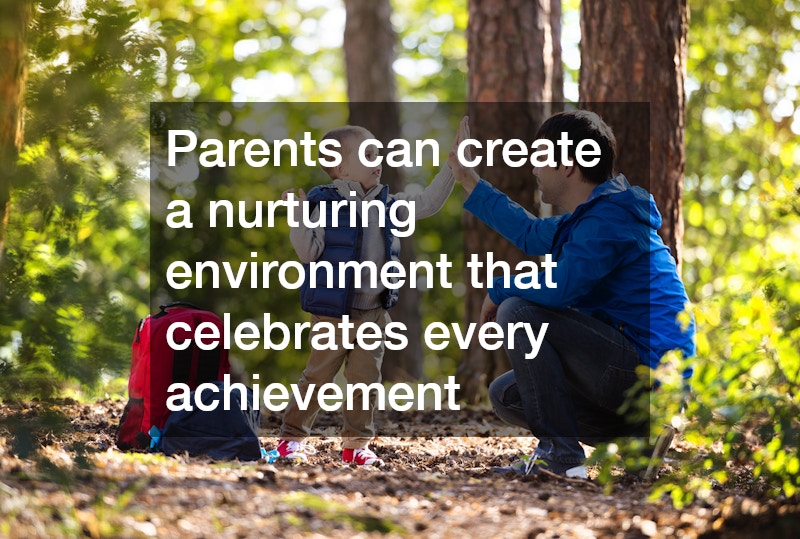Preparing for life with a child who has Down Syndrome can present unique challenges, but it is also an opportunity for unparalleled joy and growth. Parenting after a Down Syndrome pregnancy requires a blend of informed, compassionate care, and a personalized approach to nurture each child’s potential. Understanding the journey ahead, embracing the complexity, and celebrating the milestones are vital elements for fostering an environment of love and support.
How can I best support my child’s development?
Understanding Developmental Milestones
Children with Down Syndrome typically follow a different trajectory of developmental milestones than their peers, which makes it crucial to recognize these individualized patterns. Tracking developmental progress with patience and care is vital to providing appropriate support and interventions.
Close collaboration with healthcare providers can assist in setting realistic goals and managing expectations to ensure each child’s achievements are celebrated.
Despite delays in achieving certain milestones, children with Down Syndrome possess unique abilities and strengths that deserve nurturing. Celebrating everyday achievements, no matter how small, encourages development and builds confidence. Parents play a critical role in recognizing their child’s progress and adapting strategies to nurture growth.
Progress can be non-linear, and understanding this can alleviate frustrations when milestones take longer to reach. Consistent interaction, coupled with a deep understanding of a child’s pace, creates an environment that fosters development. Keeping a milestone diary not only tracks a child’s growth but also identifies areas where additional support may be beneficial.
Utilizing Early Intervention Services
Early intervention services are a cornerstone of support for children with Down Syndrome, emphasizing the importance of starting early to maximize developmental opportunities. These services often include physical, occupational, and speech therapy tailored to the individual needs of each child. By addressing developmental challenges ahead of time, these interventions can significantly enhance a child’s ability to learn and interact with their environment.
Accessing these resources as soon as possible can provide significant benefits, including better preparedness for school and social integration. Collaborating with specialists within early intervention programs helps build a comprehensive support plan that aligns with the child’s specific needs. This collaborative effort empowers parents to become informed advocates and active participants in their child’s developmental journey.
It’s crucial for parents to be proactive in seeking these services, as early intervention can lay a strong foundation for future learning and growth. Parents should work closely with service providers to tailor the interventions to their child’s unique strengths and challenges. Such personalized care ensures that each child’s developmental potential is fully supported and encouraged.
Creating a Stimulating Home Environment
An engaging home environment is essential for stimulating the development of children with Down Syndrome. By incorporating sensory-rich materials, interactive activities, and adaptive learning tools, parents can foster both cognitive and physical development. It’s important to create spaces that encourage exploration and play, which are natural modes of learning for children.
A stimulating environment should balance structure with flexibility, allowing children to explore their interests while promoting practical life skills. Daily routines infused with elements of learning and fun can aid in skill reinforcement and development. Parents should consider investing time in activities such as arts and crafts, puzzles, and music which can enhance motor skills and cognitive function.
Additionally, fostering a sense of independence within this environment encourages children to develop confidence in their abilities. Simple changes, such as creating accessible spaces where children can safely reach for toys or books on their own, can empower them. The combination of safety and independence nurtures a child’s curiosity and supports their developmental milestones.
What resources are available for parents?
Connecting with Support Groups
Support groups for families of children with Down Syndrome offer invaluable opportunities for connection and sharing. Parents can find both local and online groups tailored to fit their needs, offering emotional and practical support. These groups provide a platform for exchanging experiences, alleviating feelings of isolation, and cultivating a sense of community.
Forging relationships within these communities can offer parents practical advice and moral support along the parenting journey. New parents can gain insights from those with more experience, fostering a cycle of empathy and understanding. This exchange of knowledge and experience can lead to discovering new solutions and strategies in either parenting or advocacy.
Interaction with others who face similar challenges encourages resilience and provides emotional benefits. Whether seeking advice, sharing achievements, or simply finding solace in shared experiences, support groups strengthen the parenting journey. Building these supportive networks helps create a strong foundation for both parents and children.
Accessing Educational Materials
A wide array of educational materials exists specifically tailored to support Down Syndrome parenting, providing a wealth of information and strategies. Books, websites, and webinars offer guidance on topics ranging from healthcare solutions to educational techniques. Engaging with these educational resources empowers parents to become effective advocates and informed caregivers.
These well-crafted materials often contain expert advice, evidence-based methods, and personal stories that can inspire and instruct. They offer insights into improving communication, social skills, and academic pursuits tailored to the needs of children with Down Syndrome. Utilizing these resources not only supports day-to-day parenting but also enhances the overall quality of life for both child and family.
Parenting after a Down Syndrome pregnancy involves a commitment to informed and compassionate care, focusing on supporting development, accessing resources, and advocating effectively. Understanding developmental milestones, utilizing early intervention services, and creating a stimulating home environment lay a strong foundation for nurturing growth. By connecting with support groups, accessing educational materials, and partnering with experienced healthcare providers, parents can equip themselves with the necessary tools to navigate their journey.
Advocacy for a child’s needs is central, requiring awareness of legal rights, collaboration with educators, and a focus on fostering social inclusion. The power of informed and proactive parenting in this context cannot be overstated, serving to enhance the child’s quality of life and potential to thrive. Through dedicated effort, love, and support, parents can create a nurturing environment that celebrates every achievement, and ensures that the child’s unique potential is fully realized.
.












